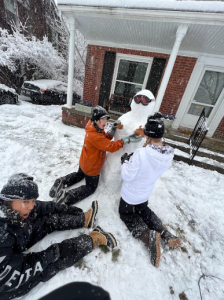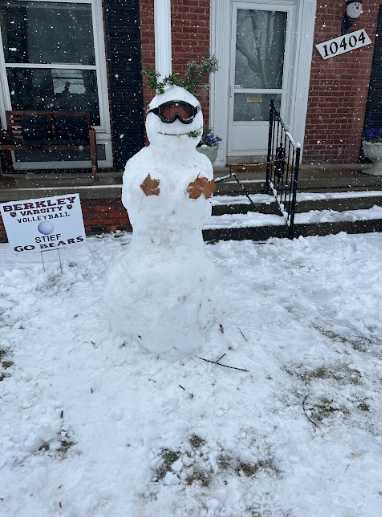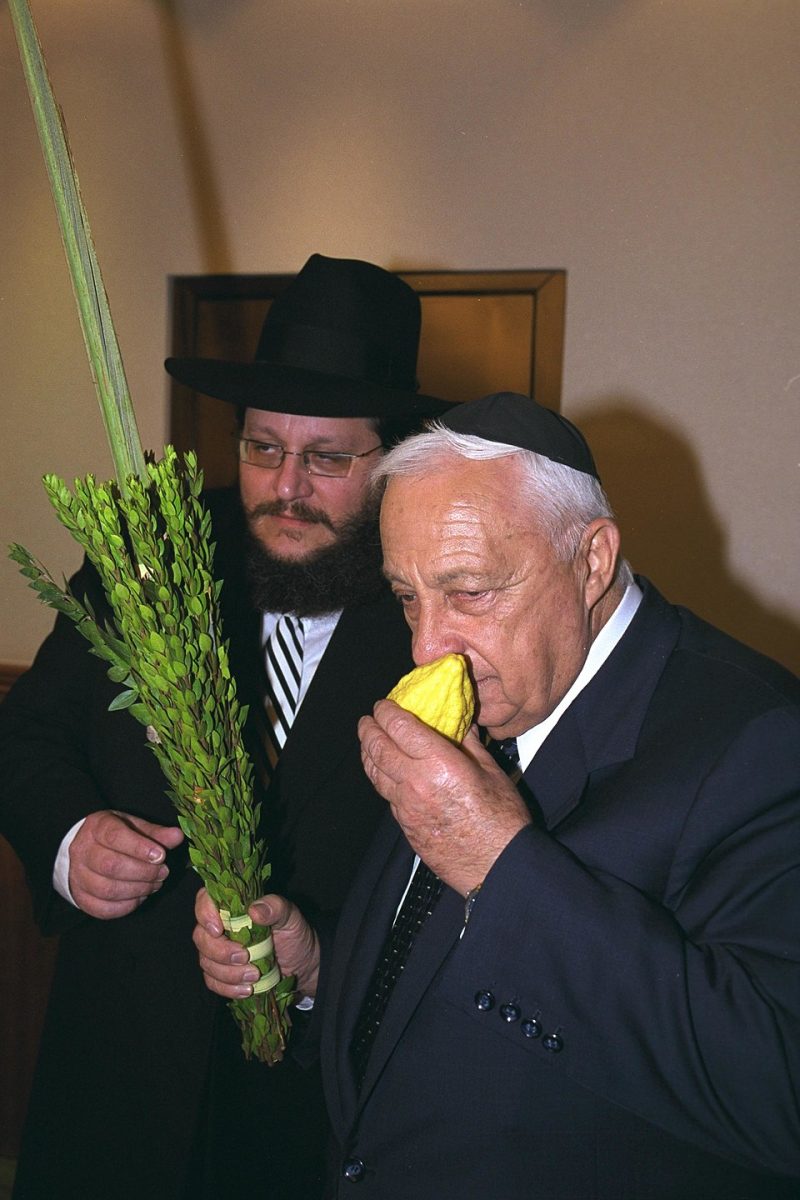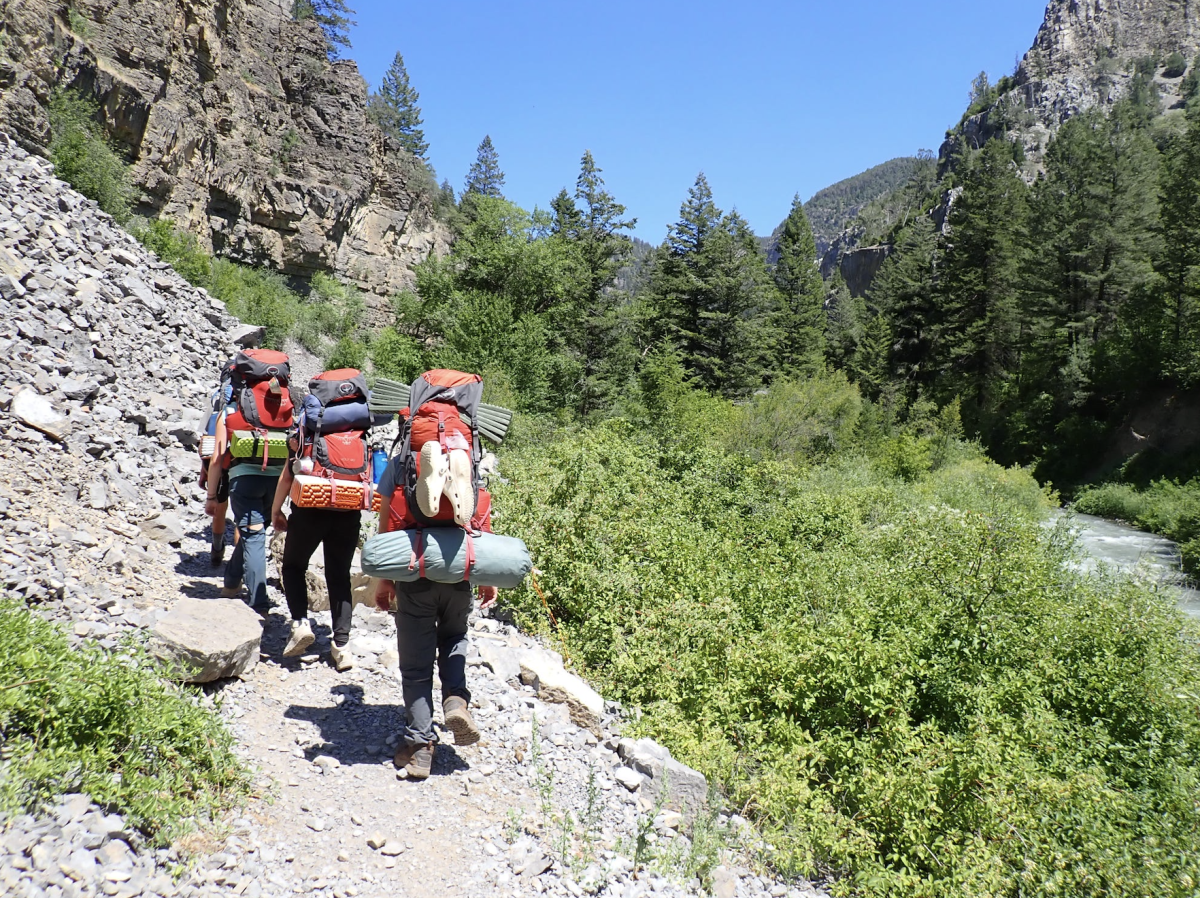Snow days have always been more than just an unexpected break from school. They were moments of magic, of sleeping in, building snow forts, and feeling the weight of winter pause time. For many, it represented a child’s right of passage, one filled with anticipation of the world being transformed by snowflakes. But with climate change altering weather patterns, snow days are becoming less likely. As warming temperatures shift the seasons, the snow that once covered our town is not what it was before, making it so that creating those special moments becomes harder. Leaving many to wonder if snow day memories will soon be relics.
As snow days seem to become more rare, one can’t help but feel a sense of loss. For those who grew up with them, these once-familiar winter moments were more than just a break, they were a symbol of a childhood’s fleeting joy. Senior Gretchen Steif reflects on her favorite snow day activity, saying, “My favorite thing was always making a snowman or sledding.” She also recalls one particular snow day that stands out in her memory, “It was like sophomore year, it was the first snow day of the year and my friends and I got together. We built a 7ft tall snowman, and it was so much fun because it was blizzarding and snowing, and we just made a huge snowman. We spent four hours outside just laughing and having fun, and it made us closer as a friend group.”
While cherishing those memories of snow-filled fun, the reality of the effects of climate change has begun to shift our winters. As temperatures increase and snowfall becomes less likely, she can’t help but feel a sense of sadness. “It’s so sad to think about,” Stief says, “and snow days are what keep winter depression limited because you can always look forward to snow days, and with the climate change, it just makes me a lot sadder for winter, and I feel like it’s just going to make winter a lot harder for everyone.”
She’s not alone in her feelings. Senior Anna Vanoyen shares a similar concern, saying, “The fact our Earth has warmed enough to the point where we are physically getting less snow is crazy, and it’s insane to think about.” Reflecting on the snow days she once enjoyed, Vanoyen recalls a special memory from her childhood. “One year my elementary school best friend, who lived behind me, in her backyard was a giant hill, and her dad built a trail for the sleds. It was like a sledding trail that went all the way down the hill, but we used that for an entire day, and then her dad got mad because we messed it up, but that was okay because we were just kids having fun.”

When asked about what snow days mean for younger kids today, Vanoyen reflects, “I think they either won’t get snow days at all because schools can just switch to online learning or if they do get one, they’ll likely choose to stay inside. They’ll want to play video games or be on their screens, rather than going outside.” Stief agrees, saying, “I’m not sure if this will actually happen, but I could see schools having online snow days. I also think that for kids now, the first thing they’ll do is play video games with their friends instead of experiencing the outdoors. It’s really sad to think about because they’ll miss out on playing in the snow.” This shift highlights a growing disconnect from outdoor play, potentially impacting kids’ health and social skills.
This growing trend and the changing climate point to a future where snow days could become even rarer. As these memories of snow days fade, it’s clear that the impact of climate change is reshaping not only our winters but also the cherished moments they once provided. What was once a spontaneous escape into nature is now a rare event, and the possibility of online snow days only makes the sense of loss worse. For those who grew up with them, these snowy moments were more than just days off school, they were an opportunity to connect with friends, embrace the season, and create long-lasting memories. As the world changes, it’s important to hold onto these memories while also acknowledging the need for action to protect the winters we once knew. For the generations to come, the question still stands: will they ever know the simple joy of a snow day?









